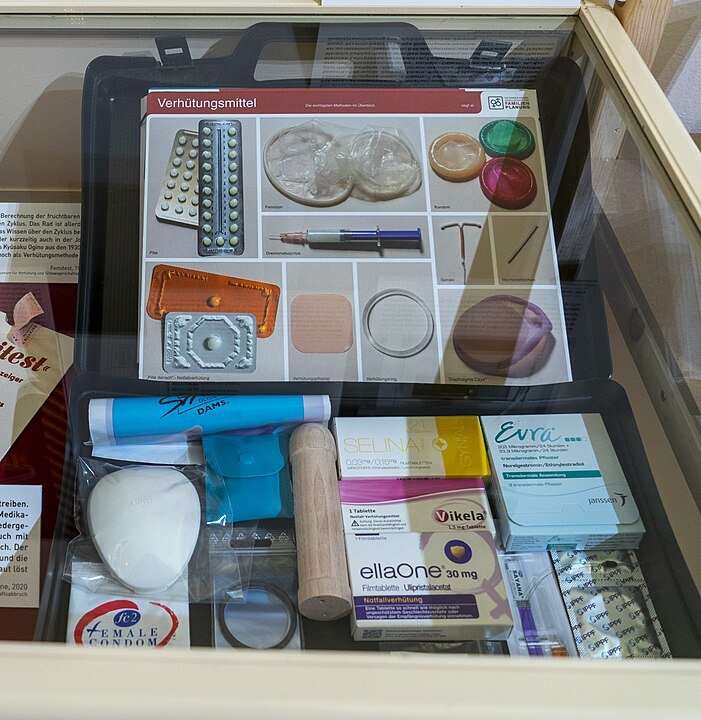By Ndey Ceesay
Comprehensive Sexuality Education is important for empowering individuals with accurate information about reproductive health and rights.
It entails a wider range of topic including anatomy, contraception, STI prevention, consent, healthy relationship and reproductive rights.
Also arms young people with the requisite knowledge needed to make informed decisions about their bodies and sex lifestyles.
WHAT IS COMPREHENSIVE SEXUALITY EDUCATION?
According to United Nations Educational, Scientific and Cultural Organization (UNESCO), comprehensive sexuality education (CSE) is a curriculum-based process of teaching and learning about the cognitive, emotional, physical, and social aspects of sexuality.
“It aims to equip children and young people with knowledge, skills, attitudes, and values that will empower them to realize their health, well-being, and dignity; develop respectful social and sexual relationships; consider how their choices affect their own well-being and that of others; and understand and ensure the protection of their rights throughout their lives.”
Comprehensive sexuality education (CSE) gives young people accurate, age-appropriate information about sexuality and their sexual and reproductive health, which is critical for their health and survival, the agency stated in its Comprehensive Sexuality Education Implementation Toolkit.
WHAT ARE REPRODUCTIVE RIGHTS?
Reproductive rights are centered on women’s ability to make the best choices for their lives, including around the number of children they have, if any, and the spacing between their children’s births.
Reproductive rights include prenatal services, safe childbirth, and access to contraception, according to Human Rights Watch (HRW). These are essential for women to enjoy their human rights.
WHAT IS SEXUALITY?
Sexuality is ‘a core dimension of being human. It includes the understanding of, and relationship to the human body – emotional attachment and love, sex, gender, gender identity, sexual orientation, sexual intimacy, pleasure and reproduction. “Sexuality is complex and includes biological, social, psychological, spiritual, religious, political, legal, historic, ethical and cultural dimensions that evolve over a lifespan, UNESCO stated in its International technical guidance on sexuality education p.17. published in 2017.

WHY TALK TO YOUNG PEOPLE ABOUT THEIR SEXUALITY AND SEX HEALTH?
When young people are enlighten about their sexuality and sex health it helps them in the following ways:
- Delay initiation of sexual intercourse
- Have fewer sex partners
- Have fewer experiences of unprotected sex
- Increase their use of protection, specifically condoms
- Improve their academic performance
WHEN SHOULD SEXUALITY EDUCATION BEGIN?
Children and adolescents have the right to be educated about themselves and the world around them in an age- and developmentally appropriate manner – and they need this learning for their health and well-being.
A study conducted by the Montclair State University underlined that sexuality education should begin at kindergarten.
The study also stated that Children as young as preschool age not only comprehend, but can openly discuss subjects as varied as gender diversity, gender nonconformity and gender-based oppression, making it the ideal time to begin creating a foundation for lifelong sexual health.
Applying a learner-centered approach, CSE is adapted to the age and developmental stage of the learner, according to UNESCO. Learners in lower grades are introduced to simple concepts such as family, respect and kindness, while older learners get to tackle more complex concepts such as gender-based violence, sexual consent, HIV testing, and pregnancy.
Equally, a lack of high-quality, age-appropriate sexuality and relationship education may leave children and young people vulnerable to harmful sexual behaviors and sexual exploitation.
WHO SHOULD BE INVOLVED IN SEXUALITY EDUCATION?
Many people have a role to play in teaching young people about their sexuality and sexual and reproductive health, whether in formal education, at home or in other informal settings. However, key actors in ensuring young ones are taught sexuality education includes:
- Government education,
- Health and other ministries;
- Non-governmental organizations;
- Youth workers and young people; and other
- Stakeholders working on quality education, sexual and reproductive health, adolescent health and gender equality.
- Parents and guardians
DOES SEXUALITY EDUCATION ENCOURAGE RISKY SEXUAL ACTIVITY?
Well-designed and well-delivered sexuality education programmes support positive decision-making around sexual health. Evidence shows that young people are more likely to initiate sexual activity later – and when they do have sex, to practice safer sex – when they are better informed about sexuality, sexual relations and their rights.
According to UNESCO’s International technical guidance on sexuality education: an evidence-informed approach for schools, teachers and health educators, a review of 87 studies from around the world and found none of the programmes led to earlier sexual activity in young people.
It also found more than a third of the sexuality education programmes increased condom or contraceptive use, while more than half reduced sexual risk-taking.
DOES SEXUALITY EDUCATION PREVENT CHILDREN FROM SEXUAL ABUSE?
- Prevent and combat sexual abuse against children
- Sexual violence and sexual exploitation
- Prevent children from falling prey to sexual offenders online
CSE AND THE GAMBIAN SITUATION
“Comprehensive sexuality education; bedrock for adolescents and young people”, a United Nations Population Fund (UNFPA The Gambia) article from 2022 states that every young person has the right to have the opportunity to choose between their sexual and reproductive health, which might have a profound impact on their lives.
Despite this, in the Gambia the vast majority of teenagers lack the information necessary to responsibly make choices of this kind, according to the UN agency. “This leaves them at risk of being coerced, contracting sexually transmitted illnesses, and even experiencing an unexpected pregnancy.”


